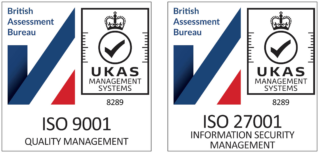Right to work checks: why should recruitment agencies be carrying out right to work checks and what is likely to happen if they don’t?

Guest blog written by Melissa Mhondoro, Solicitor and Head of Legal Advice at the Recruitment & Employment Confederation (REC).
As the professional body for recruitment businesses and individual recruiters, the Recruitment & Employment Confederation’s (REC) members rely heavily on our legal resources and audited products to assist them with remaining compliant in the recruitment process. Right to work checks consistently remain at the top of the list of legal and compliance enquiries which the REC’s legal and compliance teams receive. Recruitment businesses want to know how to compliantly conduct a right to work check, why they are required to conduct a right to work check and the consequences of failing to do this. So, in this blog, I’ll take a look into some of these key questions:
Why should agencies carry out right to work checks?
Recruitment agencies should conduct right to work checks to be compliant with recruitment laws on the supply of temporary workers and the introduction of permanent candidates by agencies and immigration laws.
The Conduct Regulations 2003 and The Gangmasters Licensing Rules and Conditions (for agencies operating within the Gangmasters Labour Abuse Authority (GLAA) sectors) form the regulatory framework most recruitment agencies in the UK are required to operate within and agencies must comply with these laws.
Before supplying a temporary worker, agencies are obligated to confirm that a worker has all the legal permissions required for them to work in the role offered by the agency’s client. There are also prohibitions on the supply of workers where doing so would be detrimental to either the worker or the agency’s client. A worker who works without the right to work in the UK commits a criminal offence and consequently supplying them to work is likely to be to their detriment.
Before introducing a candidate for a permanent role which involves working with vulnerable people, an agency should ensure that its client has been provided with copies of the authorisations a candidate is required to have to work in the role. This includes copies of proof of the candidates’ right to work such as an IDSP output.
The Conduct Regulations require an employer to keep right to work records for one year, however, the Immigration (Restrictions on Employment) Order requires employers to keep records for at least two years after the end of an engagement with a worker. Agencies should therefore be able to present a worker’s right to work at least two years after their engagement with the worker has ended to demonstrate their compliance with the Conduct Regulations and to establish a legal excuse if a worker is later found to have been working illegally.
What are the legal consequences of not conducting a right to work check compliantly?
The Employment Agencies Standards Inspectorate (EAS) and the Employment Agency Inspectorate (EAI) are the bodies responsible for the enforcement of the Conduct Regulations in Great Britain and Northern Ireland respectively. They have powers to inspect an agency’s premises and to issue a wide range of sanctions where they find a breach of the regulations. The sanctions include but are not limited to prosecutions, prohibition orders banning agencies from operating and labour market enforcement orders. The GLAA have similar powers to enforce breaches of their licensing rules in the sectors they regulate, however they are also able to revoke GLAA licences.
The Home Office has wide ranging powers to issue sanctions to employers who engage workers illegally. These include prosecution resulting in imprisonment with a maximum term of 5 years’ imprisonment and/or an unlimited fine. The Home Office can also issue civil penalty fines of £45,000 per illegal worker with a maximum of up to £60,000 per illegal worker for repeat breaches.
About The REC:
The REC is the voice of the recruitment industry, speaking up for great recruiters. We drive standards and empower UK recruitment businesses to build better futures for their candidates and themselves. Please visit the REC website for more details about the organisation and to enquire about REC membership.
TrustID CEO Tony Machin was recently joined by Melissa Mhondoro, from the Recruitment and Employment Confederation (REC) to discuss how Digital Identity checks can support your compliance.
The session covered:
- Digital Right to Work and Digital ID checks for DBS guidance
- Implications of getting compliance checks wrong
- Fraudulent document trends
- Benefits of technology and digital identity checks
This blog was provided to us by our partner The Recruitment and Employment Confederation and does not constitute legal advice from TrustID.
Sign up to receive updates
Receive notifications from TrustID direct to your inbox. Simply fill out your email address in the form below.
Want to find out more?
We’d be really happy to chat through your requirements and offer advice on the best service for your business.
Tel: 0118 466 0822 or email us.
Request a callback

